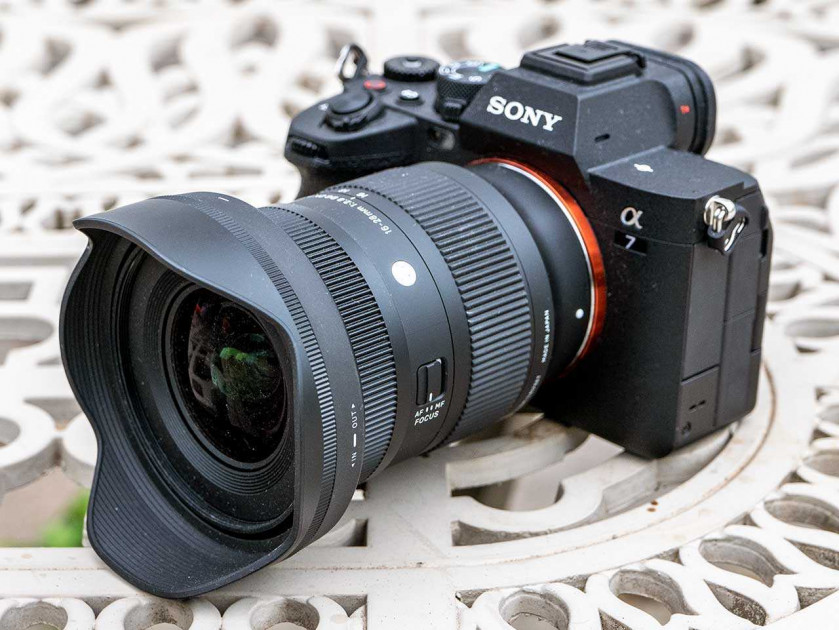
Introduction
The Sigma 16-28mm F2.8 DG DN Contemporary for Sony E-Mount and L-Mount is a fast ultra-wide-angle zoom lens for 35mm full-frame Sony, Leica, Panasonic and Sigma cameras.
It will also work with APS-C sensor cameras with an effective increase in focal length to 24-47mm due to the crop factor.
The Sigma 16-28mm F2.8 was first announced in June 2022. This lens is designed and made in Japan.
The lens is constructed of 16 elements in 11 groups including 5 FLD elements and 4 aspherical elements.
The Sigma 16-28mm for Sony lens features a rounded 9 blade diaphragm which creates an attractive blur to the out of focus areas of the image.
Super Multi-Layer and Nano Porous coatings help ensure that flare is well-controlled even in backlit conditions, and there is also a water and oil-repellent coating on the front side of the lens.
It also offers a dust- and splash- proof construction of the lens mount, a 72mm front filter thread, a stepping AF motor for fast and quiet autofocusing, internal zoom and a minimum focusing distance of 25cm / 9.9in. and maximum reproduction ratio of 1:5.6.
The Sigma 16-28mm F2.8 DG DN Contemporary lens is priced at £749.99 / $899.99 in the UK and the USA, respectively.
Ease of Use
Weighing in at just 450g / 15.9oz. and measuring 77.2mm x 102.6mm / 3.0in. x 4.0in., the Sigma 16-28mm F2.8 DG DN Contemporary is a very light and compact lens given its versatile focal range.
It’s significantly lighter and much more compact than its big brother, the outstanding 14-24mm F2.8 DG DN Art, which weighs in at 795g and measures 13.1cm in length.
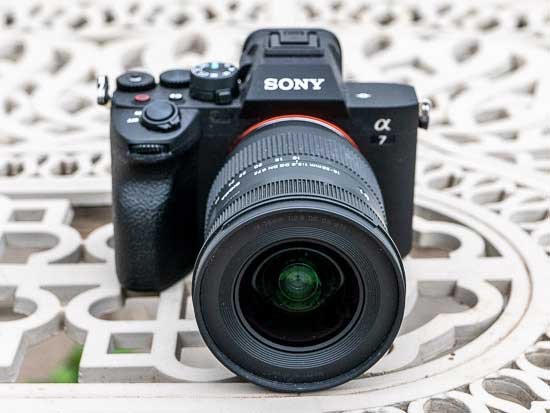
Compared to its main rival, the popular Sony FE 16-35mm F2.8 GM, the new Sigma 16-28mm also has the edge in terms of size and weight, with the Sony measuring almost 16cms in length when you set the focal length to 16mm and weighing in at 680g.
This lens also has the advantage of not extending at all when zoomed out from 16mm thanks to its internal zoom mechanism.
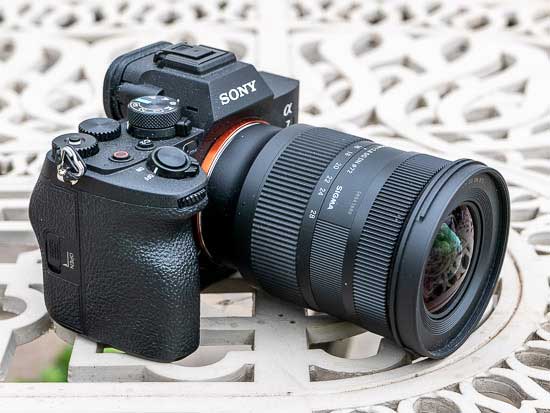
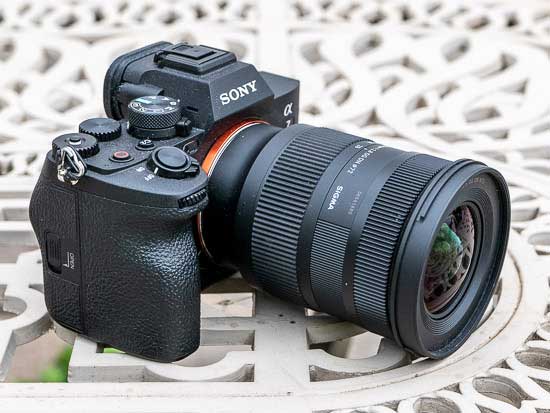
Note that the direction of the zoom ring is the opposite to Sony lenses, which can be a little disconcerting when switching between them.
As seen in the product photos, it complements a 35mm full-frame camera like the new Sony Alpha A7 IV that we tested it with, and it also feels very much at home on a smaller APS-C body, where the effective focal range changes to 24-47mm.
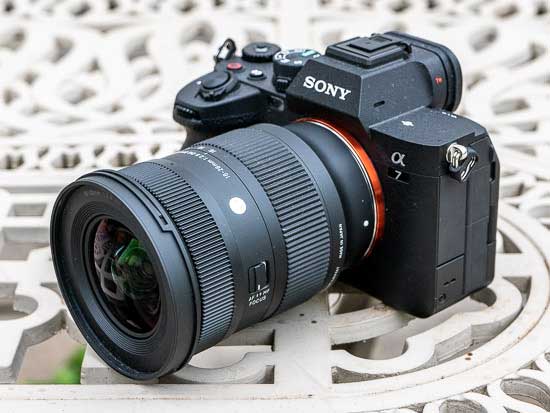
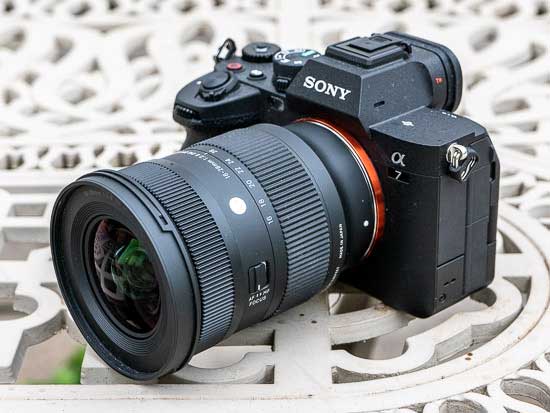
Build quality is excellent given the comparatively affordable price tag. The lens has a plastic shell with a mixture of metallic parts and a compound material, TSC (Thermally Stable Composite), used inside.
It also incorporates a brass bayonet mount that’s supposed to be more durable. The optical elements are made of high-grade glass.
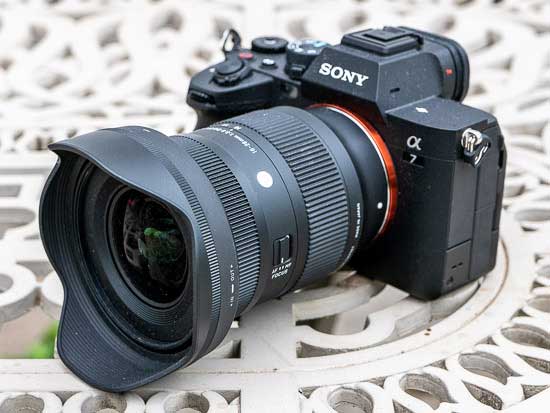
In terms of features, the Sigma 16-28mm F2.8 DG DN Contemporary is a little sparsely attired, especially when compared to the Sigma 14-24mm F2.8 DG DN Art.
Neither of these lenses includes built-in Vibration Reduction, instead relying on the camera body to supply this feature. Arguably optical image stabilisation isn’t really needed for super-wide-angle lenses anyway, especially if they spend most of their lives mounted on a tripod.
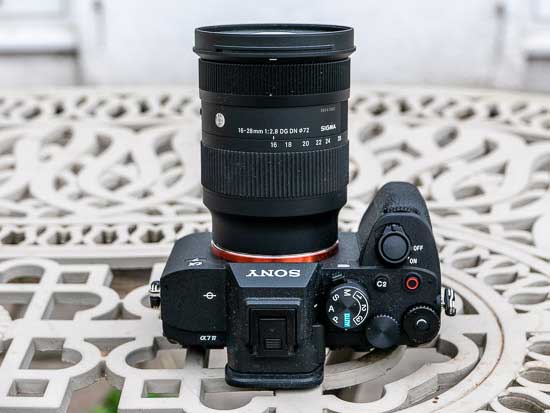
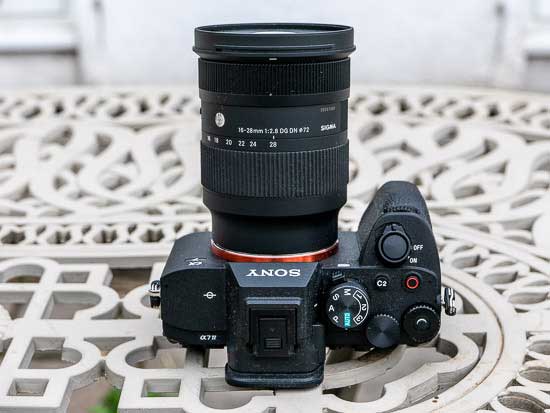
The new Sigma 16-28mm also loses Auto Focus Lock (AFL) button that are found on the bigger, more expensive Sigma 14-24mm lens, in order to help achieve its small size and low weight, although it still does offer a Focus function switch.
Focusing is usefully internal and manual focusing is possible when set via the Focus switch on the lens barrel. Full-time manual focus override is also available at any time simply by rotating the focus ring.
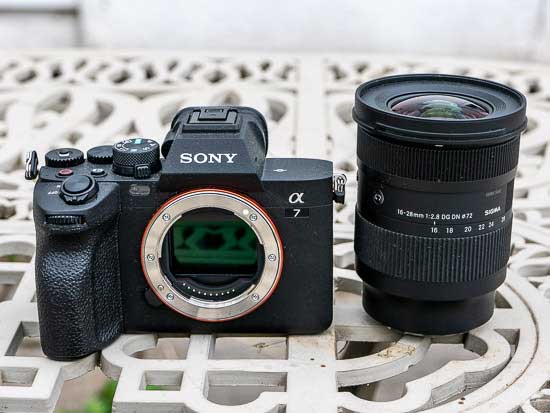
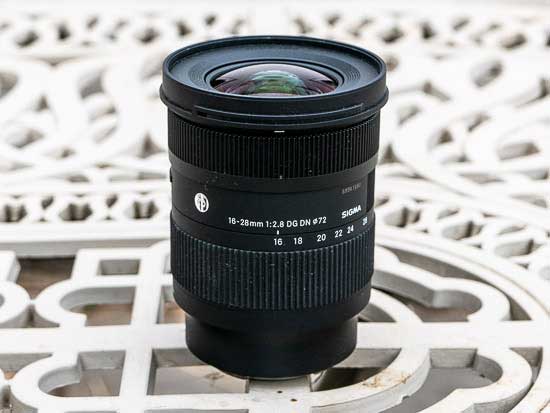
Importantly, the lens is also fully compatible with the “Direct Manual Focus (DMF)” system feature of Sony cameras that enables the user to instantly switch between autofocus and manual focus.
The Sigma 16-28mm F2.8 DG DN Contemporary lens has a fairly generously sized focus ring, which is ridged for easier grip. There are no hard stops at the ends of the range, making it harder to set focus at infinity. There’s also no distance scale or depth of field scale on this lens.
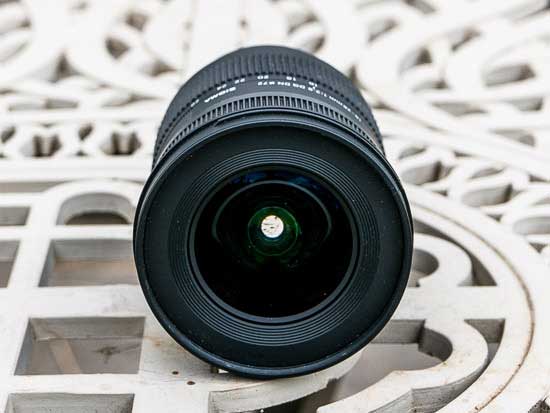
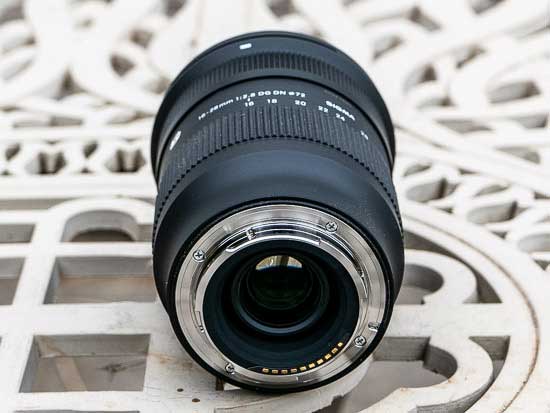
Filter users should be very pleased that this lens has an economical 72mm filter thread which doesn’t rotate on focus, whereas the Sigma 14-24mm F2.8 doesn’t accept standard screw-on circular filters due to its large, bulbous front element. Instead there’s a built-in rear filter holder equipped with a fall prevention lock for attaching sheet type rear filters.
When it comes to auto-focusing, the Sigma 16-28mm F2.8 DG DN Contemporary is a quick performer, taking about 0.15 seconds to lock onto the subject when mounted on the Sony Alpha A7 IV that we tested it with.
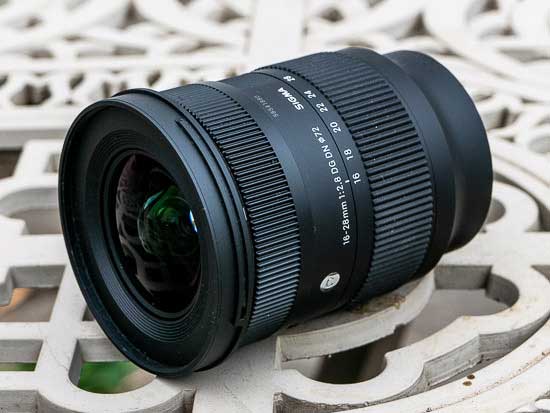
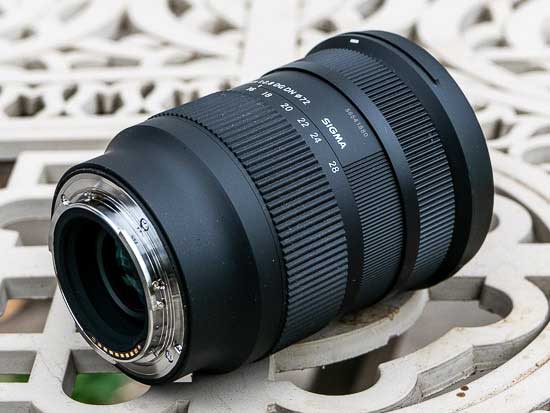
We didn’t experience very much “hunting” at all, either in good or bad light, with the lens accurately focusing almost all of the time. It’s also a very quiet performer, which makes this lens equally well-suited to both video recording and more candid stills shooting.
The Sigma 16-28mm F2.8 DG DN Contemporary ships with a plastic petal-shaped lens hood (LH756-01) that twists into place, but there’s no soft case included as with the more expensive Art version.
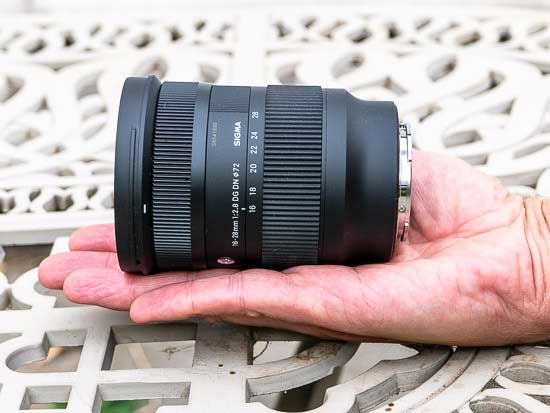
Focal Range
The 16mm focal length provides an angle of view of 107 degrees on a full-frame camera.

16mm
The 28mm focal length provides an angle of view of 75.4 degrees on a full-frame camera.

28mm
Chromatic Aberrations
Chromatic aberrations, typically seen as blue or purple fringes along contrasty edges, were not too apparent in our test shots, only appearing in very high contrast areas. The examples below show the worst-case scenarios.

16mm

28mm
Light Fall-off
With the lens set to its maximum aperture of f/2.8, there is obvious light fall-off in the corners, especially at the wider focal lengths, requiring you to stop down by at least 3 f-stops to completely prevent it.

16mm

28mm
Distortion
There’s a lot of distortion evident at both ends of the zoom range which you’ll need to correct in post-processing. Alternatively, most Sony Alpha cameras can automatically and successfully apply Lens Distortion corrections to the JPEG files, but not to the RAWs.

16mm

28mm
Sunstars
The Sigma 16-28mm F2.8 DG DN is capable of producing quite nice sunstars when stopped-down to f/16 and f/22, as shown below.
The lens is quite susceptible to flare when shooting directly into the sun, though, even with the supplied lens hood fitted.

16mm

28mm
Macro
The Sigma 16-28mm F2.8 DG DN isn’t really a macro lens, offering a minimum focusing distance of 25cm / 9.9in. and a maximum magnification ratio of 1:5.6. The following examples demonstrate how close you can get to your subject.





Bokeh
Bokeh is a word used for the out-of-focus areas of a photograph, and is usually described in qualitative terms, such as smooth / creamy / harsh etc.
In the 16-28mm F2.8 DG DN lens, Sigma have employed an iris diaphragm with 9 circular blades, which has resulted in appealing bokeh for what is after all an ultra-wide-angle lens.
We do realise, however, that bokeh evaluation is subjective, so we’ve included several examples below for your perusal, all shot wide-open at f/2.






Sharpness
In order to show you how sharp this lens is, we are providing 100% crops on the following pages.






